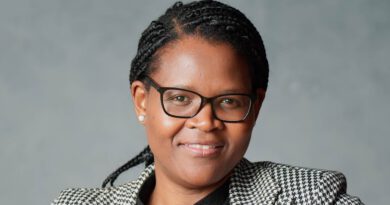South Africa still keen to amend broadcast ownership rules
The limit on foreign ownership of commercial South African broadcasters will be increased to 49%, according to a new draft of government’s white paper on audio audio-visual services.
“The draft white paper proposes retaining the limitations in respect of foreign ownership of broadcasting services subject to them increasing to a maximum of 49% to stimulate investment,” the white paper says. Currently, foreign ownership of broadcasters is restricted to 20% of voting rights in a company, although its economic interest can be higher. A previous draft of the white paper, published in 2020, also proposed lifting the limit to 49%.
This means foreign businesses like French pay-television operator Canal+, which owns 31.7% of DStv’s parent company MultiChoice Group, could increase its stake further once the white paper is turned into legislation – a process which, admittedly, could take years.
Canal+’s financial stake in MultiChoice is above the 20% limit mandated by the Electronic Communications Act (ECA) of 2005. Since the ECA’s jurisdiction is limited to South Africa, Canal+’s voting rights and director-level representation in MultiChoice South Africa are limited to that 20%.
This may be what prompted Canal+, which is owned by media giant Vivendi, previously to call its stake in MultiChoice a “long-term financial investment”, although an incremental buying spree that began in 2020 has raised questions about the French broadcaster’s ultimate intentions.
While the proposed new broadcast ownership rules widen the scope of investment for foreign entities, it still “prohibits a foreigner from exercising control over a local commercial broadcasting licensee”. The white paper proposes to relax this limitation even further for “a foreign person or foreign persons from an African Union member country”.
Exception to the rule
“To support South Africa’s commitment and to promote investment in a reciprocal manner in the AU, it is recommended [that member-state citizens be able to own a stake] exceeding 49%,” said the white paper. This exemption is subject to a reciprocal agreement between South Africa and the AU member state in question.
The proposed amendments in the white paper have been in the works for years. The pace may now be picking up under newly appointed communications minister Mondli Gungubele, who took over the portfolio in March from Khumbudzo Ntshavheni.
Gungubele recently oversaw a critical milestone in the long-delayed digital terrestrial TV migration project by freeing up the “digital dividend” bands above 694MHz for use by cellular network providers from 1 August. Publication of the new draft of the audio-visual white paper suggests progress regarding amendment of the ECA may be around the corner, too.
In a summary of the white paper, the department of communications & digital technologies said it believes that in the last 25 years, South Africa’s legal framework for broadcasting regulation has become out of tune with the rapid technological developments.
 The draft white paper found that millions of South Africans depend on the SABC, and the sustainability of the public broadcaster has an impact on its employees, sports rights associations, signal distributor Sentech, independent television producers, commercial partners, and creative artists like musicians, actors, writers and directors.
The draft white paper found that millions of South Africans depend on the SABC, and the sustainability of the public broadcaster has an impact on its employees, sports rights associations, signal distributor Sentech, independent television producers, commercial partners, and creative artists like musicians, actors, writers and directors.
Proposals include that regulatory parity and fair competition need a technology-neutral approach to ensure growth and investment; and to distinguish between traditional broadcasting services (linear), video-on-demand providers and video-sharing platforms (non-linear) in a graduated fashion.
The regulations hope to create a level playing field between competing services by imposing regulations and public interest obligations on licensees. Government will put in place legislation provisions for a transitional framework for the conversion of existing licences to the new licensing framework where required.
Read: Canal+ hikes stake in DStv parent – again
Sentech will continue to play a key role in the audio-visual content service sector as the common carrier for electronic communication network services for broadcasting services on terrestrial and satellite platforms.
The plan is for cabinet to adopt the final white paper by 31 March 2024. Comments are invited until 8 September and the department confirms that, following cabinet approval, the drafting of proposed legislation will get under way in the 2024/2025 financial year, which begins on 1 April 2024. – © 2023 NewsCentral Media
Get TechCentral’s daily newsletter
Source: techcentral.co.za



